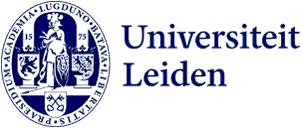
How the CWTS used Deep Democracy to shape sustainable travel policy
What do you do if you want to reach the widest possible consensus on a decision, ensuring it represents all the feelings and ideas within your team? The Centre for Science and Technology Studies (CWTS) tried the Deep Democracy method. It proved successful: ‘Everyone had a say without us getting stuck in indecision. The bonus is we’re more aware of each other’s perspectives.’
The experiment was sparked by a desire within the CWTS to make its sustainable travel policy even more ambitious than the university-wide policy. One of the key points was how to approach intercontinental travel. Another was the debate on flying versus taking the train in Europe More specifically: whether flying should only be allowed if the train journey would take longer than nine hours rather than the six hours set by the university policy. This was the subject of much debate. ‘We wanted to make the best possible decision, one that really resonated with our staff’, said Ludo Waltman, the scientific director of the CWTS. They succeeded: a widely supported CWTS Travel and Event Attendance Policy is now in place.
What is Deep Democracy?
Deep Democracy is a method designed to help groups reach decisions. It gives to all perspectives, encouraging participants to really listen and develop a deeper understanding of one another. As people engage with different views, their ideas start to shift. Everyone is heard and decisions enjoy wider supported. It’s a step-by-step process that involves: talk, then vote, then explore what dissenters need to say ‘yes’ and adjusting the proposal accordingly. At the CWTS, 30 people took a few hours to reach a decision: staff will take the train for work-related trips if the journey is less than eight hours. ‘This way of making decisions really needs to be embedded in, especially for with controversial topics. We weren’t exactly efficient this time, so we’re going to keep practising.’
Interesting process for strong-minded people
Thed van Leeuwen, Professor by Special Appointment of Science Studies and Ludo’s colleage, added, ‘I found it a really interesting process. This place is full of highly educated, strong-minded people, all with have an opinion on sustainable travel.’ Thed had a different take from Ludo, ‘When it comes to flying, there are other factors to consider beyond the climate. Safety, for example. What if a female colleague travels by train and gets stranded in the middle of the night? So you need to take other things into account too.’
Thed is pleased with both the process and the outcome: ‘It’s a fundamentally different way of making decisions than we used before, and a very welcome one. You see quieter or younger people feel more confident speaking up.’
